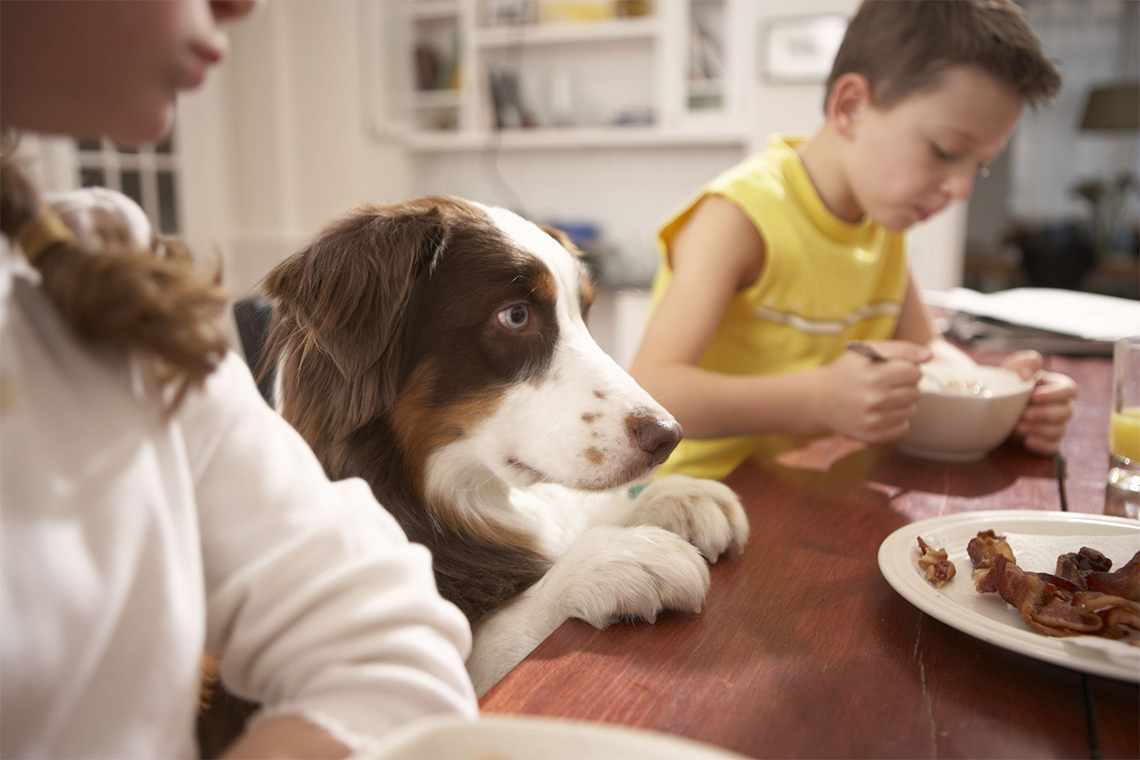As dog owners, it is important to keep our furry friends healthy and happy. This includes making sure that they are eating a healthy and balanced diet. However, there are some foods that can be very dangerous for dogs and should never be given to them. In this article, we will discuss some of the most dangerous foods for dogs and why they should be avoided.
Chocolate
Chocolate contains a substance called theobromine, which can be toxic to dogs. The amount of theobromine varies depending on the type of chocolate, with dark chocolate containing the highest amount. Symptoms of chocolate poisoning in dogs can include vomiting, diarrhea, seizures, and even death. It is important to keep all chocolate and chocolate-containing products, such as cocoa powder and baking chocolate, out of reach of dogs.

Grapes and raisins
Grapes and raisins can cause kidney failure in dogs. The exact substance in grapes and raisins that is toxic to dogs is unknown, but even small amounts can be dangerous. Symptoms of grape or raisin toxicity can include vomiting, diarrhea, lethargy, and decreased appetite. If you suspect that your dog has eaten grapes or raisins, it is important to seek veterinary attention immediately.
Onions and garlic
Onions and garlic can cause damage to a dog’s red blood cells, leading to anemia. Symptoms of onion or garlic toxicity can include weakness, lethargy, and pale gums. These foods should be avoided in all forms, including powdered and cooked. It is important to note that some human foods, such as baby food, can contain onion powder or garlic powder, so it is important to always read labels before giving any food to your dog.
Avocado
Avocado contains a substance called persin, which can be toxic to dogs in large amounts. The flesh of the avocado itself is not toxic, but the pit, skin, and leaves can be dangerous. Symptoms of avocado toxicity can include vomiting and diarrhea. Additionally, the pit can cause a blockage in a dog’s digestive system, which can be life-threatening.
Xylitol
Xylitol is a sugar substitute that is found in many sugar-free gum and candy products, as well as some toothpastes and baked goods. Xylitol can cause a rapid release of insulin in dogs, leading to hypoglycemia (low blood sugar). Symptoms of xylitol toxicity can include vomiting, loss of coordination, and seizures. In severe cases, it can even lead to liver failure.
Alcohol
Alcohol can be very dangerous for dogs, even in small amounts. Dogs are much smaller than humans, so even a small amount of alcohol can be toxic. Symptoms of alcohol toxicity in dogs can include vomiting, diarrhea, difficulty breathing, and in severe cases, coma and death. It is important to keep all alcoholic beverages and products containing alcohol out of reach of dogs.

Macadamia nuts
Macadamia nuts can cause lethargy, vomiting, hyperthermia, and tremors in dogs. The exact substance in macadamia nuts that is toxic to dogs is unknown, but even small amounts can be dangerous. Symptoms can occur within 12 hours of ingestion and can last for up to 48 hours.
Cooked bones
Cooked bones, particularly those from poultry, can splinter and cause blockages or tears in a dog’s digestive system. These can be life-threatening conditions that require emergency veterinary attention. It is best to avoid giving any type of bones to your dog, but if you do give them, they should always be raw.
Dairy products
Many dogs are lactose intolerant, which means they have difficulty digesting dairy products. Symptoms of lactose intolerance in dogs can include diarrhea, vomiting, and gas. In addition, some dairy products, such as cheese and ice cream, are high in fat and can cause pancreatitis, a serious condition that requires veterinary attention.
Caffeine
Caffeine is a stimulant that can be dangerous for dogs in large amounts. Symptoms of caffeine toxicity can include restlessness, rapid breathing, heart palpitations, muscle tremors, and in severe cases, seizures and death. Caffeine can be found in coffee, tea, chocolate, and some soft drinks, so it is important to keep all products containing caffeine out of reach of dogs.
Fatty foods
Fatty foods, such as bacon, sausage, and fried foods, can cause pancreatitis in dogs. Pancreatitis is a serious condition that occurs when the pancreas becomes inflamed. Symptoms of pancreatitis in dogs can include vomiting, diarrhea, abdominal pain, and lethargy. It is best to avoid giving your dog any high-fat foods.
Raw eggs
Raw eggs can contain salmonella, a bacteria that can cause food poisoning in dogs. In addition, raw egg whites contain avidin, a substance that can interfere with the absorption of biotin, a B vitamin. This can lead to skin and coat problems in dogs. It is best to avoid giving your dog raw eggs and to cook eggs thoroughly before giving them to your dog.
Salt
Excessive salt can be dangerous for dogs and can lead to dehydration, vomiting, diarrhea, tremors, and even death. It is important to avoid giving your dog any salty foods, including chips, pretzels, and salty meats.
Yeast dough
Yeast dough can expand and produce gas in a dog’s stomach, causing bloating and discomfort. In addition, yeast produces alcohol as it ferments, which can lead to alcohol toxicity in dogs. It is important to keep all yeast dough out of reach of dogs and to avoid giving them any unbaked dough.

Medications
Many medications that are safe for humans can be very dangerous for dogs. Some common medications that are toxic to dogs include acetaminophen, ibuprofen, and certain antidepressants. It is important to keep all medications out of reach of dogs and to consult with a veterinarian before giving your dog any medication.
In conclusion, it is important to be aware of the foods that are dangerous for dogs and to take steps to keep them out of reach. If you suspect that your dog has ingested any of the foods listed above, it is important to seek veterinary attention immediately. By being vigilant and taking steps to keep your dog safe, you can help ensure that your furry friend remains healthy and happy for years to come.












